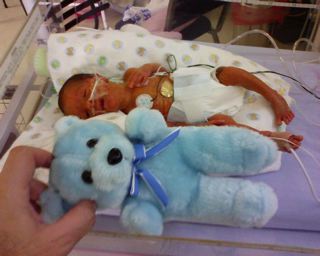This week I had the rare opportunity to attend an academic conference in my home town (Somerset West!) - the conference was the 5th anniversary conference of Churches in mission - attended by cluster Churches that belong to the missional Church movement.
First some personal background - I was humbled and deeply honoured when Dr Coennie Burger approached me a few weeks ago to join BUVTON at the University of Stellenbosch as a research associate. The University and the Institute have some plans that will unfold in the next little while, so do keep an eye on this space. It is a joy to be associated with BUVTON and with the faculty of theology at the University of Stellenbosch since this was where I first began my doctoral studies, and I have many friends in the faculty. Moreover, the faculty has been very kind to me over the years (allowing rights to the library, giving me classes to teach, and inviting me to various conferences and events).
I still hold an adjunct post in New Testament at the University of Pretoria (working as an associate to honorary Professor Jan van der Watt who is now at Nijmegen in Holland). And, I was nominated as a research Fellow for the Institute for the Study of Religion at the University of South Africa earlier this year as well.
Each of these posts caters to different interests - the value for me is that they keep me keenly connected to the academy, and the value for the various partnerships is that they get the benefit of my research output (each time I publish a scholarly article, present a conference paper, do book review for a journal, or write something in a book it adds value, and sometimes funding, for them).
So, Dr Burger and Dr Frederik Marais invited me to the abovementioned conference under the auspices of my partnership with BUVTON. I was truly thankful that it worked out that I could attend the conference since I had booked out some time for a conference that I was supposed to attend first in Argentina, but then when it moved to Hawaii (to cater for North American delegates) the cost made it impossible to go. My boss did however go, and it meant that my diary was miraculously open!
The theme of the conference was 'Living as sent ones: Congregations participating in God's Mission'. It was such an uplifting and informative time for me!
The first most significant feature of the conference was the daily pracise of 'dwelling in the word' - I had read about the method in the past, but the simplicity of it had never appealed to me. However, experiencing, and participating with others, in this spiritual discipline was truly a transformative personal experience! Here is a brief explanation of the approach:
Church Innovations has the habit of text dwelling. That is, whenever we meet, as a staff, as a work team, as a training group, we spend the first 20-30 minutes, sometimes more, dwelling within a particular scriptural passage. For us, most of the time, the text is Luke 10:1-12. It is a text of mission, of being sent out with the most basic of instructions, dependent upon our receivers? hospitality....
You can have this habit, too.
- Choose a passage - perhaps a lectionary text for this coming week, perhaps a passage already meaningful to your group, and read it aloud.
- Sit together with the passage, in silence, or in conversation, sharing with one another where your imagination was caught or where a memory was triggered. Let the passage draw you together as a group.
- Bring the passage up when you're trying to make a decision. See what it says to you then.
- Close with the passage and prayer.
- Bring up the passage again during the next meeting, in the same manner.
- Live in the passage for several months. It will bring more and more to you as you revisit it (at Church Innovations we have been living in Luke 10 for over ten years now).
The particular text for this conference was Luke 24. As a Biblical scholar I was constantly tempted to work with the technical elements of the text (historical background, grammatical and syntactical clues, the narrative style and construction of the narrative etc.) However, the intent of this approach is to create a hospitable encounter with the power of the text, and to learn from one's own experiences, and the experiences of others. This approach takes seriously what I have discussed in two recent books I have written for (see my chapter on Biblical interpretation, spirituality and postmodernism in 'What are we thinking' by Forster and Bentley 2009, and also my chapter in 'What is a good life?' by Bentley, Kretzschmar and van Niekerk 2009). In both instances I discuss the value of approaching the text with an open recognition that we do so from a particular perspective (this is not only based on theological bias, personal experience, and socialisation, it is also influenced by our needs, our struggles and our desires).
The second, and equally wonderful aspect of the conference was the narrative approach to sharing 'stories of mission'. I guess there were about 100 or so participants at the conference. They came from as far as Malawi, Namibia, Zimbabwe and all over South Africa. The participants shared stories of how mission was being shaped in their context through an openness to
what God is doing! This approach speaks of trust in God, rather than merely crafting a mission strategy. It speaks of harnessing the move of God's spirit by
dwelling in the word and seriously
dwelling in the world. These two things go hand in hand. Scripture and context.
Various inputs were encouraging and inspiring - but perhaps the most remarkable for me were some conversations with old friends (like
Prof Klippies Kritzinger (more of a mentor than a personal friend),
Dr Breda Ludik (a friend I have known for years in the Helderberg who is doing some incredible work in spirituality), and
Prof Pat Keifert (a new friend - I had read some of his works such as '
We are here now' (2006), and most notably '
Welcoming the stranger' (1992). You can find out more about
Pat here)
Pat is the founder of the movement for missional Churches. His theology and approach to being in mission (as a participation in the
mission dei (mission of God)) resonates so strongly with my own perspective. Moreover, he is a stringent and supremely well read Systematic Theologian, so his thoughts are 'tight', clear and orthodox.
Dr Frederick Marais summed up Pat (and the movement's) approach to being in mission as follows - true mission involves a series of
conversions:
1. From the Church to God. Ultimately the reason for being and particularly being in ministry and mission is NOT to grow the Church, or perpetuate a structure. True ministry and mission is about a sincere and deep journey with God, along God's way in the world.
2. From ideas ABOUT God to a journey WITH God! The thrust of the missional movement is not theology (as such), the greatest value comes not from knowing things ABOUT God, but rather from lovingly and faithfully journeying WITH God (i.e., Knowing God and God's ways and responding lovingly to God's guidance and instruction). This can lead one among strangers quite quickly! I came to realise how this is the case for me. I am minister in a corporate environment, I am a theologian among people who build roads, I am from a liberal theological tradition among persons who hold a much more conservative and literal approach to their faith... However, I am having to find Christ among 'the strangers' and to find friendly strangers with whom to share this journey with God in Christ.
3. From power to vulnerability. Sadly Mission and ministry are often movements of Power - an imposition of ideas and concepts and structures upon persons in order to shape them in the image of the missioner or minister's theology or tradition (from those who have to those who don't, i.e., this was exemplified by the missionaries to Africa in the 19th century who maintained that they were bringing 'light to the dark continent'). This is not the way of Jesus. The way of Jesus is to break down power with love. To enter into a transformative relationship that is sacraficial and servant hearted. This resonates so strongly with where I currently am! I have had to give up titles, a pulpit, the right to contribute my thoughts and ideas - in the corporate environment my ministry is measured by my love and service, not my ideas and intelect. This point breaks down the power of the minister or pastor. It does away with unhelpfull dichotomies between the ordained and the lay ordained (because as we were reminded, Luther and the reformers accentuated the tradition that Baptism is an ordination to the priesthood of ALL believers! Every members of the body of Christ is truly a minister in response to their baptism).
4. From the extraordinary to the ordinary! This point encourages us (like the disciples in Luke 24) to look for God with us in the ordinary things. So often the Church and the Christian faith looks for God only in the extraordinary - of course God is there. But, God is also present and powerful in the ordinary things.
Listen to this remarkable quote:
I have often maintained that the best poet is ... the baker who ... does [the] majestic and unpretentious work of kneading the dough, consigning it to the oven, baking it in golden colours and handing us our daily bread as a duty of fellowship. - Pablo Neruda, Chilean poet and 1971 Nobel Laureate in Literature (1904-1973)
Isn't that so true? Sometimes we miss the move of God because our attention is focused on the wrong things!
So, I had a chance to learn, and to share, what God is doing in other lives and in mine. It was wonderful to be able to hear the stories of how God is doing God's mission among Churches and Christians all over the world.
It was also wonderful to share how my 'servant' role is indeed the work of mission. I am looking forward to a significant partnership with BUVTON (although my input is more likely to be in the areas of systematic theology, social justice, HIV/AIDS and Wesleyan Theology), and as part of that partnership to learn much more about the partnership of missional Churches.
 markpenrith said...
markpenrith said...








 .
.
 .
.




